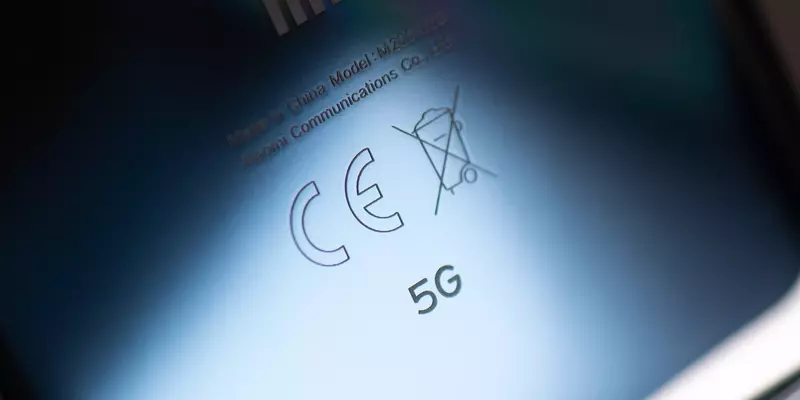Why Is 5g Banned In Some Countries? – The emergence of the fifth-generation mobile network (5G) technology is an exciting development in the telecommunication industry. The technology offers better speeds and connectivity, low latency, and enhanced network stability among other advantages. 5G technology is expected to power innovative services such as smart cities, self-driving cars, remote surgeries, and virtual reality applications.
Why Is 5g Banned In Some Countries
However, despite the potential benefits, some countries have banned or restricted the use of this technology within their borders. In this article, we will explore some of the reasons why 5G is banned in some countries.
1. Security concerns
One of the primary reasons why some countries have banned or restricted the use of 5G technology is based on security concerns. Critics argue that 5G networks vulnerabilities could be exploited by cyber attackers for espionage or sabotage. Countries such as the United States and Australia have expressed fears that 5G infrastructure could be used as tools for malign activities. These fears are based on the fact that 5G networks involve a greater number of interconnected devices, making them more susceptible to cyber-attacks.
2. Health concerns
Another reason why some countries have banned 5G technology is based on health concerns. Critics argue that 5G radiation could pose significant health risks to both humans and the environment. Studies have I suggested that high frequency electromagnetic radiation emitted by 5G technology could increase the risk of cancer, infertility, and birth defects. As of today, there are no conclusive studies that suggest any adverse health effects of 5G radiation. Nevertheless, some countries have adopted a precautionary approach by banning or restricting the use of this technology.
3. Economic protectionism
Another reason why some countries have banned 5G technology is based on economic protectionism. Some countries’ decision to shun 5G is based on the fact that the technology is mainly controlled by a small number of companies from a few countries such as China, South Korea, and the United States. Some countries fear that allowing foreign companies to control their 5G infrastructure would pose a cybersecurity risk and leave their nations vulnerable to geopolitical pressures.
4. Political reasons
Some countries have also banned or restricted the use of 5G technology for political reasons. For instance, some countries have refused to adopt 5G based on their relationship with China or Russia. Countries wary of the rising influence of these superpowers fear that adopting their technologies could give them undue influence on their domestic affairs.
Does 5G Cause Cancer?
According to numerous scientific studies and sources, there is no evidence that supports the claim that 5G causes cancer. The radio waves used in 5G are non-ionizing and do not have enough energy to damage DNA, which is a crucial factor in the development of cancer. The World Health Organization (WHO) has also stated that there is no evidence to prove any health issues from 5G exposure below international guidelines. However, further research will be required to assess any long-term effects of 5G technology.
Reasons For The Restriction Of 5G By S0me Countries
Some countries, such as the United States, have restricted the use of certain equipment from specific manufacturers, such as Huawei and ZTE, citing concerns over national security. Other countries, such as Switzerland, have placed a moratorium on the construction of new 5G infrastructure until further research can be conducted on potential health effects. Overall, the deployment of 5G technology has been met with cautious optimism and ongoing monitoring by many countries around the world.
Related: Is 5G Harmful For Humans and the Environment
How Does 5G Technology Enhance The Internet Of Things
1. High Speed: 5G technology allows for high-speed data transfer and low latency which facilitates IoT devices to connect and collect data faster.
2. Increased Capacity: 5G network’s high bandwidth and low latency will increase the capacity to support millions of connected devices.
3. Improved Reliability: 5G technology promises more stable, reliable, and secure connectivity for IoT devices compared to earlier networks.
4. High-Density Connections:Unlike 4G, 5G network provides high-density connections up to MILLIONS of devices per square mile.
5. Energy Efficiency and Cost Saving: The 5G technology optimized connectivity would help decrease energy consumption, allowing IoT devices to have longer battery life and save on costs in the long run.
6. Enhanced Machine-to-Machine Communication: 5G technology improves the scalability and efficiency of machine-to-machine communication, which can lead to more efficient business operations and cost savings.
Overall, the integration of 5G technology in IoT devices would enable businesses and individuals to harness the full potential of IoT and usher us into the era of more automation, smart devices, and advanced machine learning systems
Conclusion
In conclusion, while 5G technology presents unparalleled benefits, some countries have banned or restricted their use based on various reasons such as security, health, economic, and political reasons. As the world becomes increasingly connected, it is upon governments and technology stakeholders to work together to address these issues and come up with safe and secure regulations of implementing the 5G technology.










